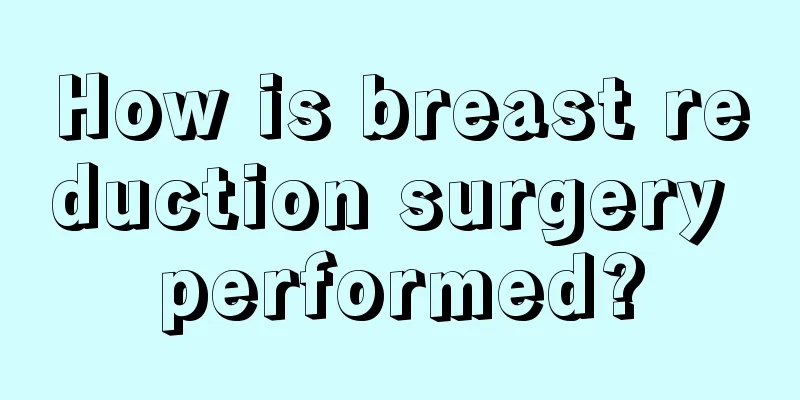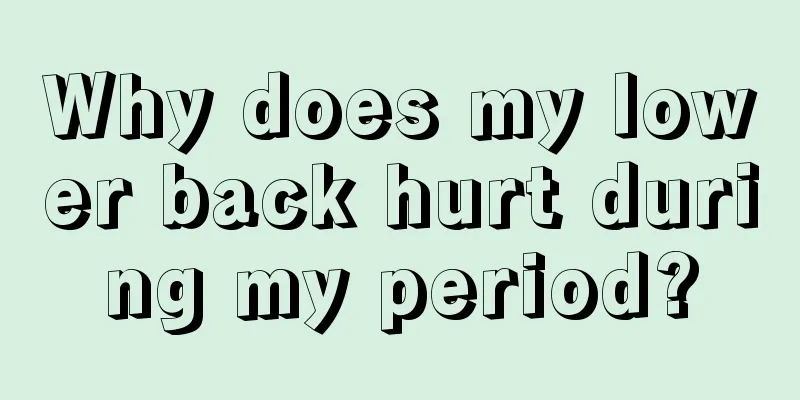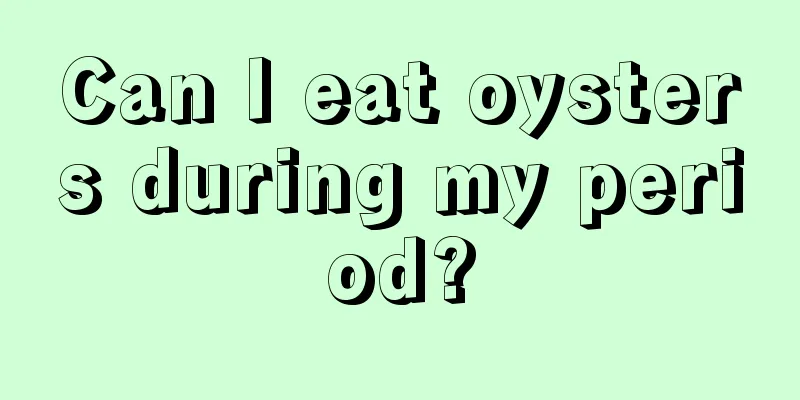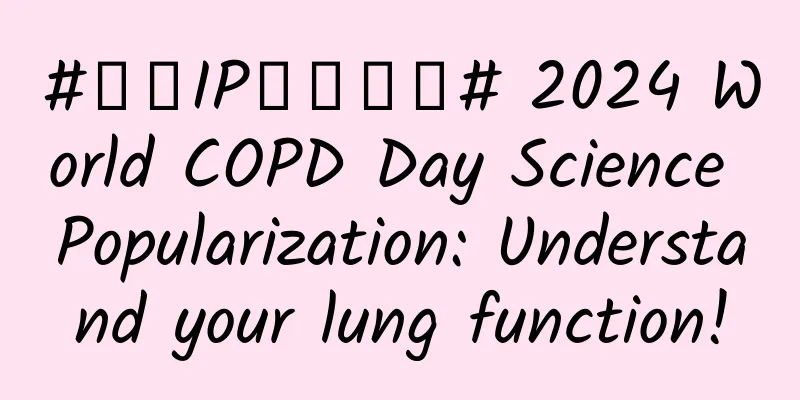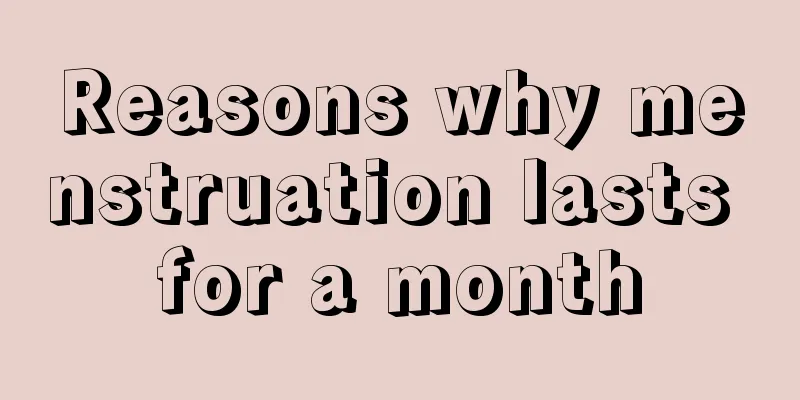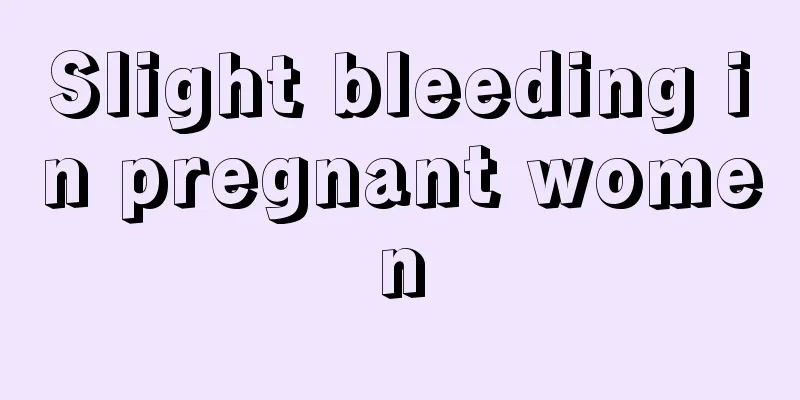Will ovarian cysts still lead to ovulation?

|
As we all know, once a woman suffers from ovarian cysts, her ovarian function will be damaged to varying degrees. If the ovarian cyst is relatively mild, the damage to the person will be relatively small, and the ovaries may ovulate at this time. In addition, ovarian cysts usually occur on one side, which will not affect the ovulation function of the other ovary. However, if severe cysts occur on both ovaries, it may lead to no ovulation. Will ovarian cysts still lead to ovulation? 1. If you suffer from ovarian cysts, if the cysts are not very large, it usually will not affect your fertility or ovulation. You can then receive conservative medication treatment for a period of time. 2. However, if the cyst is larger, more than 5cm, then surgical treatment should be considered. Otherwise, if the ovarian cyst grows too fast and too large, it can affect the blood supply to the ovaries and ovulation. Some ovarian cysts may be acutely or chronically torsioned or ruptured, which can affect the blood supply to the ovaries and cause necrosis, which can lead to ovarian dysfunction and anovulation. If it is bilateral, the impact will be greater and complications will seriously affect ovulation. The onset of ovarian cysts is usually hereditary, and more than 20% of ovarian patients have a family history of genetic disease, so ovarian cysts still have a certain familial clustering. The ovarian cysts that occur in most people are usually closely related to their living environment. Now we are in a stage of industrial development, so the living environment has undergone many changes and the air pollution is also quite serious. If a person eats high-cholesterol foods for a long time, it will cause endocrine system disorders and may cause symptoms of ovarian cysts. Don't stress too much. Some ovarian cysts are physiological and will disappear on their own. Larger cysts may affect ovulation. Guidance: It is recommended to go to the hospital for an ultrasound examination to see if there are any cysts in the ovaries. Don't worry about small cysts, just monitor them regularly. Examination revealed an ovarian cyst, which was very small. I will have a follow-up check in three months and also monitor the follicles. Ovarian cysts are relatively small and most of them can disappear, but only a few may continue to exist and grow. If the cyst is too large, it may affect ovulation. Guidance: You can go to the hospital for a color ultrasound check. If the cyst is larger than five centimeters, surgical treatment is required. If it is relatively small, regular check-ups will be sufficient. |
<<: Ovarian pain, what's going on?
>>: Can pregnancy cause ovarian cysts?
Recommend
What to do if you have pain in the left lower abdomen after menstruation
Menstruation is the most vulnerable period for wo...
Can pregnant women eat avocados?
Avocado actually has very high nutritional value ...
These 5 types of people are at high risk! A way to prevent lung cancer from becoming advanced! Kang Kang Comic Science ⑧
Renovation workers over 40 Smoking for more than ...
Is menstrual cramps normal?
In daily life, we see many female friends coverin...
Can pregnant women have MRI scans?
There are many types of diseases that can be dete...
Why does my knee hurt when I practice Ba Duan Jin? Why does my knee hurt when I practice Ba Duan Jin?
Ba Duan Jin is a colorful treasure in traditional...
Causes of corpus luteum cyst
Corpus luteum cysts in the uterus are generally c...
Women often feel dizzy and nauseous
With the development of society, the acceleration...
Why is the blood pressure in the upper limbs different and I feel dizzy when I shake my arms?
Author: Guo Baolei, Associate Researcher, Zhongsh...
What's going on if my period is delayed for 10 days and still hasn't come?
In real life, delayed menstruation in women is a ...
Will scanty menstruation affect pregnancy?
Women normally have their periods every month, an...
Is drinking coffee a health-boosting or healthy thing? Let’s start with how coffee keeps us awake
Coffee has a refreshing effect on many people, bu...
What causes vulvar abscesses?
In daily life, people often suffer from vulvar ab...
Why do Jenny cookies collapse? What should I do if Jenny cookies collapse easily?
As we all know, cookies are a popular type of bis...
